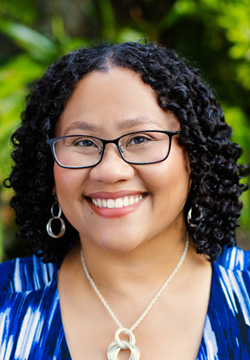Empowering Gifted Social Entrepreneurs
- May 25, 2024
- Dr. Joi Lin

I’m Joi Lin (she/her), graduating in June with my PhD in curriculum and instruction, specialized in gifted education leadership, from the University of Denver. I’m also a member of Denver Mensa and chair of the Education and Gifted Youth Committee at the Mensa Foundation. My current roles are as an adjunct professor in a teacher education program, Director of Professional Education at the Gifted Development Center, and a co-founder of my friend’s startup business.
I am excited to share about my dissertation research on July 2, 2024, at the Mensa Foundation Colloquium where this year’s topic is Giftedness Across the Lifespan: Giftedness in the Workplace. Professionally, I am interested in supporting the career development and well-being of the gifted, and the professionals who support us. To that end, I recently defended my dissertation, a Collective Case Study Career Critique of Social Entrepreneurs Who Are Gifted Adults.
I was interested in exploring the career development experiences, supports, and barriers of social entrepreneurs who are gifted adults (SEGA) and their shared social value. My research detailed case studies about five SEGA who had not completed an MBA or formal program in entrepreneurship or social entrepreneurship, had founded or co-founded a social enterprise, and who identified as being gifted adults.
Social entrepreneurs form social enterprises with missions related first-and-foremost to creating a positive social impact. For this study, social enterprises aligned with two or more of the United Nations’ Sustainable Development Goals (2015), had been in business for at least one year, and hired at least one other employee or contractor beyond the founder(s). These were all founders and co-founders of successful, existing businesses.
Each SEGA participant self-reported many qualitative characteristics of giftedness and all shared a theme of being concerned about morality and social justice on the Ksiazak Adult Giftedness Scale (Ksiazak, 2010). Participants also shared about aspects of giftedness including their identification in schools and grade acceleration; strong curiosity and urge to learn and self-educate; creativity and innovation; high-IQ; twice-exceptionality; psychological intensity; overexcitabilities; and more.
The five participants in this collective case study were Kristopher Tetzlaff, co-founder of YoubeYou Early Learning, Colorado’s first mobile preschool; Dr. Janiece Mackey, co-founder of Young Aspiring Americans for Social and Political Activism, an organization that develops civic-minded youth; Shalelia Dillard, founder of SCD Enrichment Program which works to identify gifted BIPOC students and have then enroll in and complete advanced coursework; Dr. Chris Wells, founder of the Dabrowski Center which shares about the theory of positive disintegration, particularly through the Positive Disintegration Podcast and newsletter on Substack; and Nth Bar-Fields, co-founder of Elysian Trust, an organization that forms communities of people with high levels of giftedness expressed multiple areas (cognitive, emotional, creative, intuitive, etc.) and works as a business incubator supporting mostly gifted and neurodivergent entrepreneurs and their enterprises, particularly through grant writing.
Participant data from interviews, artifacts, observations, and a focus group were analyzed through multiple conceptual frameworks including my curricular career spiral of social entrepreneurs which built upon Uhrmacher et al.’s instructional arc (2017), social cognitive career theory (Lent et al., 1994), Bronfenbrenner’s ecological model of human development (1979), and Dabrowski’s theory of positive disintegration (1964). This was a qualitative research study organized as a collective or multiple case study, and utilized my methodology of collaborative connoisseurship and critique which build upon educational connoisseurship and criticism (Eisner, 2017).
SEGA participants experienced frustration in their past work experiences and in society at large and had to overcome barriers around a lack of funding, racialized identities, and others who did not understand or support the work they were trying to do. However, SEGA used their creativity, technology, passion for self-education, positive feedback, and collaboration with colleagues to support their career development and the development of innovative social value. SEGA worked to develop their business acumen in a variety of ways as they intentionally created businesses to generate a positive social value for their communities. Ultimately, they were able to achieve, at least for now, secondary integration (Dabrowski, 1964) of a career ideal and create meaningful outcomes for clients and jobs for others.
My colloquium presentation explores qualitative gifted characteristics of SEGA participants and how their giftedness impacts their work as a social entrepreneur. The presentation will also describe participants’ career development experiences and the shared social value they created. Finally, I will conclude with recommendations for aspiring gifted social entrepreneurs and my call to action: further the career development of the gifted to help them become social entrepreneurs who create and share innovative social and environmental value to positively impact our world. I look forward to sharing more about my research with you in Kansas City!